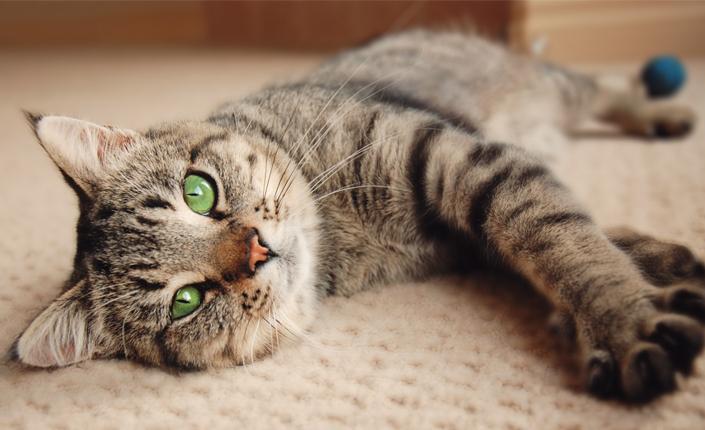
The Importance of Insuring Indoor Cats
For the most part, the life of an indoor cat is considerably safer than that of its outdoor counterparts who are faced with dodging traffic and wildlife, contracting parasites, and brawling with neighborhood bullies. However, indoor cats are also prone to accidents and illnesses. Some of which are similar to what is seen in outdoor cats. Due to this, many pet owners choose to protect their indoor cats with pet health insurance.
Illnesses are far more common than accidents
The fact is, although there is less likelihood of an indoor cat being involved in an accident, accidents only account for a small portion of the problems indoor or outdoor cats over their lifetime. Illness accounts for the vast majority of feline medical challenges and, in some cases, the risks are even higher for indoor cats.
An example of such increased risks would be Lower Urinary Tract Disease. This problem is best known by owners as causing urinary obstruction, often referred to as a “blocked” cat. It’s most commonly seen in male cats, although it can affect both sexes. Diet is a major risk factor, but studies have shown that outdoor cats are at less risk, as they urinate more frequently by marking their territory. This frequent urination lowers the chances of the tiny stones that cause the obstruction to build up.
Cancer doesn’t differentiate between indoor and outdoor cats
Most diseases in cats have little relationship to whether they spend their days lounging in the sunlight indoors, or hunting and brawling outdoors. Cancer is startlingly common in cats and accounts for one in four causes of death. On top of this, our feline friends are very good at hiding symptoms of any disease and often appear in good health until the disease has advanced significantly. In spite of the advancement of the disease, cancer (often lymphoma) is still very treatable, as recent advances in veterinary treatment have been astounding. However, along with these advances in medical therapy come increased costs. Even though treatment of many cancers can offer prolonged and improved quality of life, costs can readily escalate into thousands of dollars. Such costs are often beyond the reach of many owners, forcing them into the undesirable position of having to let their friend go.
Kidney failure is seen in many aging cats
Cancer, though, is only one of many illnesses that can affect all cats. Kidney failure is very common in aging cats, and very treatable, particularly if diagnosed early. Simple blood tests can now detect kidney problems in cats earlier than in people. Yet owners tend to be reluctant to take their indoor cat in for routine and preventive check-ups, unless a problem is clearly evident. Pet insurance allows and encourages owners to pursue even the slightest change in their cat’s routine.
Cats are inquisitive
Outdoor cats are exposed to numerous potential accidents, but indoor cats are too. Cats by nature are inquisitive and indoor cats certainly know how to get into trouble. Their desire to bat things around to marvel at the object’s erratic movements provides hours of entertainment. However, elastic bands, dental floss, tinsel, string, ribbon and small parts of children’s toys are just a small sample of items that could cause a foreign body obstruction and require lifesaving surgery. Such surgery could easily add $5,000 to your monthly credit card balance.
Common household plants and flowers are toxic to cats
Most owners enjoy the beauty and serenity provided by bringing the beauty of the outdoors indoors. Unfortunately, a number of flowers and plants are toxic to cats. Poinsettias and philodendrons are “mildly” toxic and usually cause vomiting and diarrhea. Other plants, such as members of the Lily family (Lillium or Hemerocallis species) are life threatening. Ingestion of Easter Lily can lead to acute kidney failure and death in a matter of days. Prompt and aggressive medical intervention can save the day. However, the costs associated with such intensive emergency care can be quite high.
Pet insurance provides financial protection for accidents and illnesses
Pet insurance was designed to cover the majority of costs associated with the illnesses and accidents that can affect any cat – even those who live a sheltered life indoors. In fact, many diseases that affect people also affect cats. It is human nature to think it will never happen to my cat, but statistics tell us it may very well happen to your cat. The best start is to cat proof your home, but that will only provide protection against accidents. The vast majority of illnesses are beyond our control. For these, you want to be able to provide the medical care that is in the best interest of your pet. Having pet health insurance for your indoor (and outdoor) cat will ensure you’re able to provide this high quality of care if needed.
